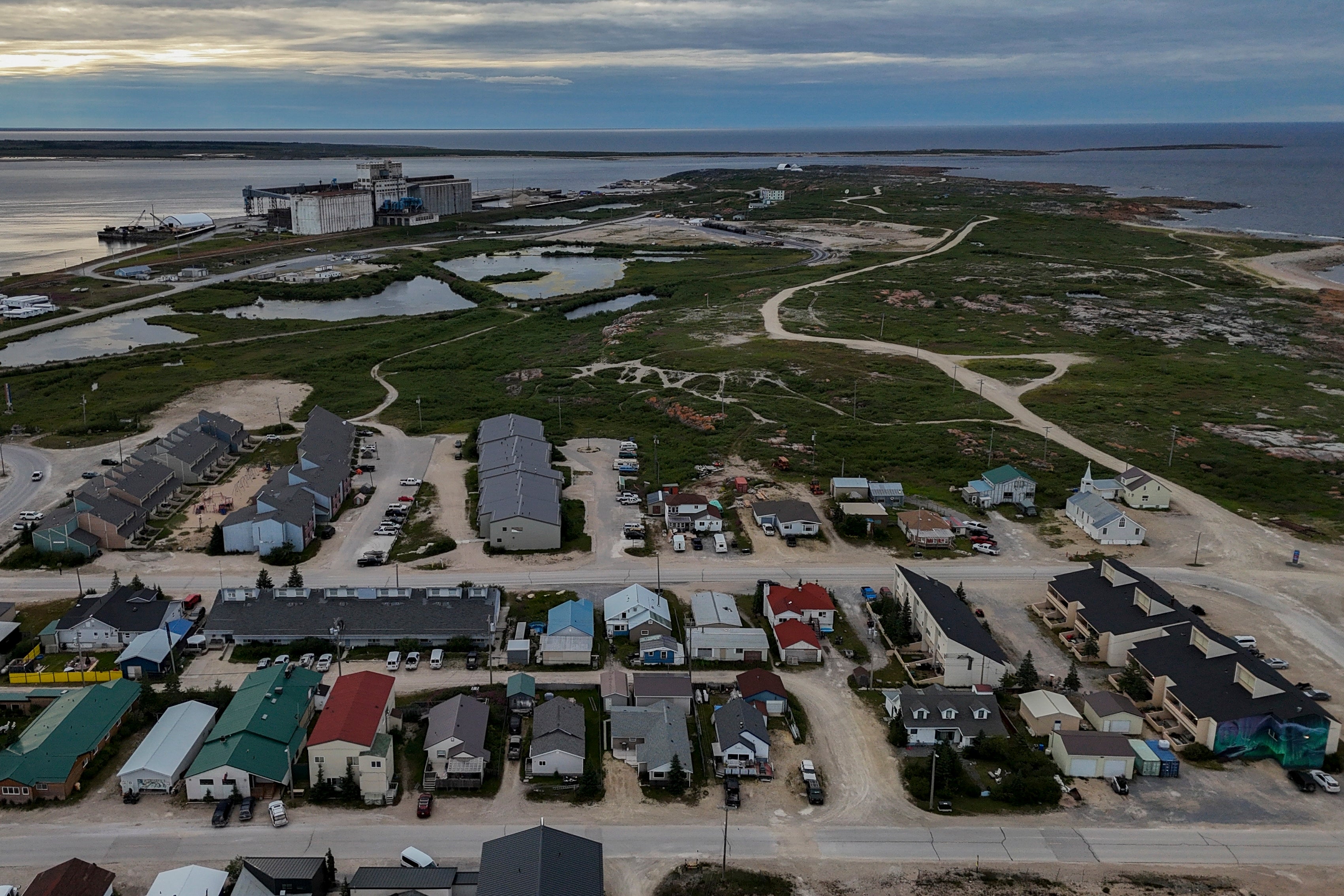Change has broken, remade and continues to reshape this remote town where tundra meets forest on the shore of Hudson Bay.
The economic base collapsed when the military left town. Rail service and cargo ships — the lifeblood of supplies for a town not connected to the rest of the world by roads — blinked out. The weather is warming, signature animals are dwindling and even the ground is shifting.
Through it all, Churchill has adapted. The town turned to tourism, luring people eager to see its plentiful polar bears. Leaders figured out ways to revitalize its port and railway. As climate change has edged into the picture, they’ve begun designing more flexible buildings and seeking to entice more varied visitors if, as scientists fear, shrinking sea ice crashes the bear population.
Residents, government officials and experts say the town is a model for coping with dramatic shifts and attribute it to the rural mindset that focuses on fixing, not whining.
Churchill sits about 1,700 kilometers (1,055 miles) north of Winnipeg. The town had thousands of people before the military base and a rocket research launch site shut down decades ago. Those sites fell into decay, and what had been a bustling port closed. Train service stopped for more than a year as weather shattered poorly maintained tracks.

As the town dwindled, bears began coming to town more often, no longer frightened away by noise from the base and rocket launches and made desperate as climate change shrank the Hudson Bay ice they depend on as a base for hunting.
A local mechanic built a fat-tired, souped-up recreational vehicle to see bears safely. Photos and documentaries attracted tourists, who spend $5,000 a visit on average and millions of dollars overall. Churchill now bills itself as the polar bear capital of the world, and though it has no stoplights, it features upscale restaurants and plenty of mom-and-pop hotels.
If that comes to an end, Churchill hopes to be ready.
The town is promoting tourism for beluga whales, although those too may be harmed as the entire Hudson Bay ecosystem, including the food the belugas eat, shifts to one usually seen further south. It’s also highlighting…
Click Here to Read the Full Original Article at The Independent Travel…
